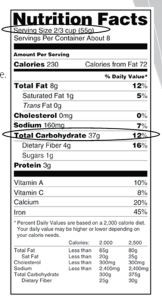Healthy eating can be a challenge for everyone. Healthy nutrition includes eating a variety of whole foods and a balanced amount of carbohydrates, proteins and fat. People with diabetes need to work hard to balance the food they eat with their blood sugar levels. A dietitian or diabetes educator can help you develop a meal plan that fits your goals and includes foods you like.
Meal Planning
- Eat a wide variety of healthy, whole foods each day.
- Choose fruits, vegetables, whole grain breads and cereals, lean meats and meat substitutes, low fat milk and dairy products.
- Foods high in carbohydrates have the biggest effect on your blood sugar.
- Spread your carbohydrate servings throughout the day. Don’t eat them all at once.
- A snack every 3-4 hours may prevent hunger, stop you from overeating, and help keep your blood sugar (glucose) in target range.
- Start your day with a meal or snack that includes some carbohydrate and protein.
- People who eat in the morning usually end up eating fewer calories throughout the day.
- Eat whole foods more often than processed foods or calorie containing beverages. Whole foods are usually higher in fiber than processed foods. For example, a fresh apple is a whole food, while apple juice and applesauce are processed foods
 Reading Food Labels
Reading Food Labels
- When reading nutrition labels, look at the “Serving Size” and “Total Carbohydrate” grams (g). One serving of carbohydrate equals 15 grams. Therefore, a meal that contains three carbohydrate servings will provide approximately 45 grams of carbohydrate.
- If the serving size is one cup and there are 31 grams (g) of carbohydrate (per serving), each cup is 2 carbohydrate servings.
- Sugar is already included in the grams of total carbohydrate. You do not necessarily need to look at the sugars when reading the nutrition label. Keep in mind that some “sugar free” foods contain carbohydrates.
- Remember: 1 carbohydrate serving is equal to 15 grams of carbohydrate.
